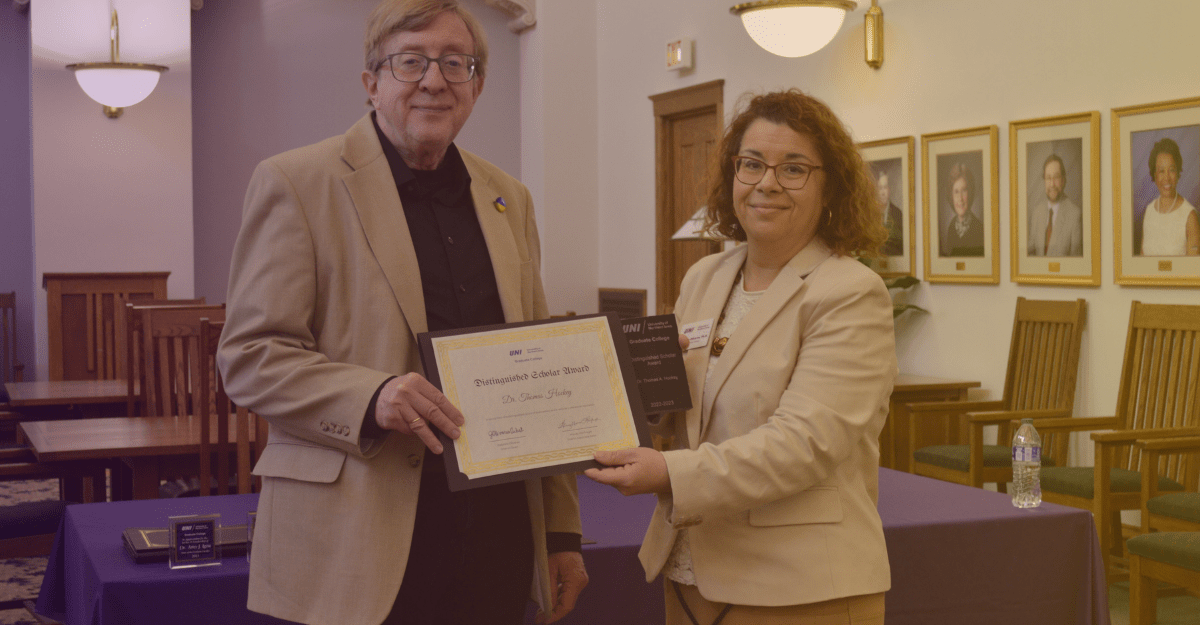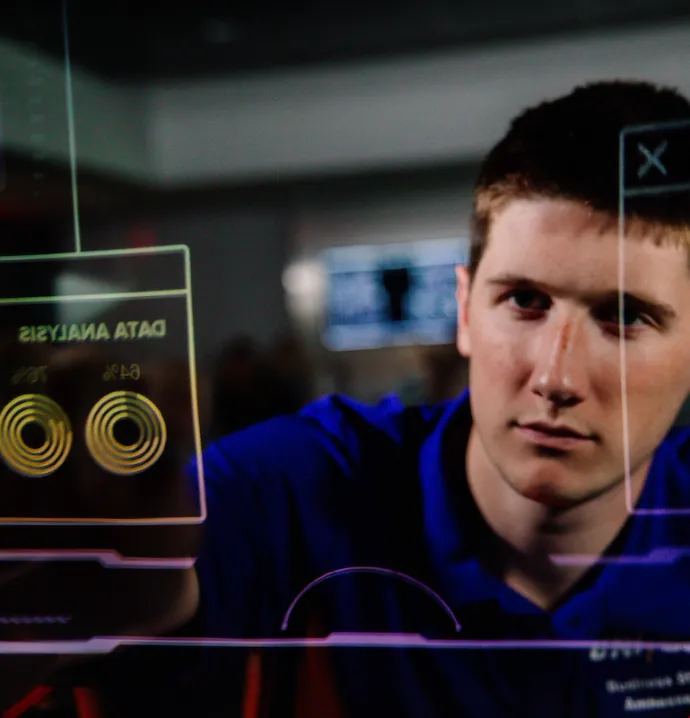Professor of astronomy wins Distinguished Scholar Award
Professor of astronomy wins Distinguished Scholar Award
On April 27th, 2023, the Graduate College awarded Dr. Thomas Hockey with the Distinguished Scholar Award at the Annual Graduate Faculty Meeting & Awards Ceremony. Hockey is a professor of astronomy at UNI and has produced an impressive oeuvre of scholarship.
Hockey grew up in Glendale, Arizona. From an early age, astronomy captured his attention. He was enthralled by the frenetic media coverage of the early space program. “I’m embarrassed to say that I watched the landing on the moon live.” He watched the eclipse of the sun and, at a different time, a comet visible from Glendale.
Considering his lifelong fascination with astronomy, it is unsurprising that Hockey was unwavering in his decision to study astronomy at the university level. He received his B.S. in planetary science at the Massachusetts Institute of Technology and then transferred to New Mexico State University to earn his M.A. in secondary education (physics and mathematics), M.S. in astronomy, and interdisciplinary Ph.D. in astronomy, history, and philosophy.
He decided to pursue an interdisciplinary Ph.D. while a graduate student. He was looking into changes that occur in planets over time and very quickly ran out of photographs. While evaluating the subjective artwork and descriptions, he realized that he was interested in the process of how this information was gathered and circulated. “I had an epiphany that I was actually a historical astronomer.” The revelation of his love for historical astronomy would drive his research interests for the rest of his career.
While finishing his Ph.D., he searched for jobs as a professor. Since both his parents were professors, they inspired Hockey to also pursue a career in academia. “My mother was a university professor at a time when that was fairly rare. I had great esteem for those working in higher education.” After graduating, he accepted a one semester temporary position teaching at UNI, where he lived in Shull Hall. He went to the College of Wooster in Ohio for a one year position, and then UNI offered him a permanent position when an astronomy professor retired. After his employment at UNI, the university became more special to him when he realized that his father graduated from UNI.
Hockey won the Distinguished Scholar Award because he has produced an impressive amount of scholarship. For example, helping edit the Biographical Encyclopedia of Astronomers, a two-volume biographical dictionary in its third edition. He has written a book that gives him pride; it centers around how Midwesterners respond to solar eclipses. He used to worry that the Midwest limited his astronomy research potential because it lacks the large telescopes and mountaintops located on the U.S. coasts. “But I realized that there was a fairly large event that occurred in Iowa in 1869. I call it the first major scientific expedition to observe a total solar eclipse in the United States; major astronomers from all over the U.S. came to Iowa because this was the best place to observe it. I aim to reveal the history of that particular eclipse experience from the viewpoint of both astronomers and Iowans of all walks of life, such as Native Americans living in western Iowa.” The book will be released soon.
He is looking forward to the 2024 total solar eclipse that will be visible in the Midwest.
Distinguished Scholar Award





